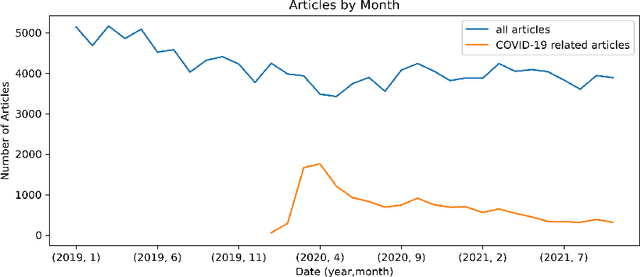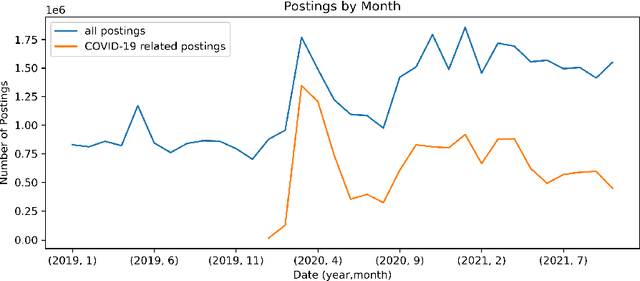Thomas Elmar Kolb
The Role of Bias in News Recommendation in the Perception of the Covid-19 Pandemic
Sep 15, 2022



Abstract:News recommender systems (NRs) have been shown to shape public discourse and to enforce behaviors that have a critical, oftentimes detrimental effect on democracies. Earlier research on the impact of media bias has revealed their strong impact on opinions and preferences. Responsible NRs are supposed to have depolarizing capacities, once they go beyond accuracy measures. We performed sequence prediction by using the BERT4Rec algorithm to investigate the interplay of news of coverage and user behavior. Based on live data and training of a large data set from one news outlet "event bursts", "rally around the flag" effect and "filter bubbles" were investigated in our interdisciplinary approach between data science and psychology. Potentials for fair NRs that go beyond accuracy measures are outlined via training of the models with a large data set of articles, keywords, and user behavior. The development of the news coverage and user behavior of the COVID-19 pandemic from primarily medical to broader political content and debates was traced. Our study provides first insights for future development of responsible news recommendation that acknowledges user preferences while stimulating diversity and accountability instead of accuracy, only.
 Add to Chrome
Add to Chrome Add to Firefox
Add to Firefox Add to Edge
Add to Edge